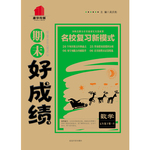题目内容
6.Teachers fear traditional playground games like British bulldog and conkers are disappearing from many of England's schools,a survey suggests.More than a quarter (29%) of the 653school staff surveyed by the Association of Teachers and Lecturers (ATL) said the chasing game,British bulldog,had been banned from their school.Some 14% said pupils were banned from playing conkers and 9% said leapfrog.Most (57%) said they felt schools were becoming increasingly risk averse (厌恶).
Around 15% of teachers,lecturers,support staff and school leaders said that fewer playground games and sports activities were played at their school than three years ago.
The key reasons for the decrease were fewer staff on hand to monitor activities,reduced funding(资金) and concerns over pupil safety.
Teachers were also questioned about changes in attitude towards risk.Some 57% of staff said there was a growing trend towards risk aversion in schools.
And of the 383staff who thought schools were more risk averse,90% said it controlled activities both in and out of school.Some 84% think it limits the school curriculum(课程),while 83% believe risk aversion puts a brake on pupils'preparation for life.
A head teacher at a primary school in Cleveland said:"All staff recognise the need to keep children safe,but not all recognise that children still need to take measured risks to develop real life skills."
"Children are allowed to explore their physical limits and learn to negotiate physical tasks at their own pace.Staff have clear guidelines and children have clear boundaries,"the teacher added.
Another high school teacher,from Wales,said:"In fact,pupils need to learn their own limitations,which they can't do if they don't meet with risks."And there continues to be fears that,should something go wrong,school trips could end in teachers or schools being charged.
56.From the first two paragraphs we learn thatD.
A.teachers express concern over pupil safety
B.schools tend to introduce new games to replace bulldog games
C.pupils become more and more unwilling to take risks
D.pupils are not encouraged to play games like bulldog and conkers
57.As for the ban of playground games,teachers feel that itD.
A.helps prepare pupils for real life
B.guarantees pupil safety at the cost of their study time
C.serves to develop the school curriculum
D.brings more harm than good to pupils in developing life skills
58.The underlined sentence implies that pupilsC.
A.don't need to take risks in life
B.are unaware of their own weaknesses
C.can learn better about themselves by taking risks
D.can never perform physical tasks well without taking risks
59.If trips are to be cancelled,the main reason would be that schoolsC.
A.lack enough money
B.have a tight schedule
C.are afraid of possible accidents
D.have fewer staff to monitor trips.
分析 本文属于记叙文阅读,作者通过这篇文章向我们介绍了如今许多英国学校取消了一些学校中的游戏活动,因为学校没有足够的人员来监督学生进行活动,无法保证他们的安全,但是一些老师觉得禁止学生游戏在培养学生的生活技能方面弊大于利.
解答 56.D 细节理解题,根据第一段Teachers fear traditional playground games like British bulldog and conkers are disappearing from many of England's schools,a survey suggests.可知前两段主要向我们介绍了学生们不被鼓励玩游戏,故选D.
57.D 细节理解题,根据第六段Some 84% think it limits the school curriculum(课程),while 83% believe risk aversion puts a brake on pupils'preparation for life.可知许多老师觉得禁止学生游戏在培养学生的生活技能方面弊大于利,故选D.
58.C 推理判断题,根据最后一段"In fact,pupils need to learn their own limitations,which they can't do if they don't meet with risks."And there continues to be fears that,should something go wrong,school trips could end in teachers or schools being charged.可知孩子们可以通过游戏探索自己的身体极限,他们可以通过冒险可以更好地了解自己,故选C.
59.C 细节理解题,根据第四段The key reasons for the decrease were fewer staff on hand to monitor activities,reduced funding(资金) and concerns over pupil safety.可知取消旅行可能是因为学校害怕会发生事故,以及资金不足等,故选C.
点评 考查学生的细节理解和推理判断能力.做细节理解题时一定要找到文章中的原句,和题干进行比较,再做出正确选择.在做推理判断题时不要以个人的主观想象代替文章的事实,要根据文章事实进行合乎逻辑的推理判断.

 期末好成绩系列答案
期末好成绩系列答案 99加1领先期末特训卷系列答案
99加1领先期末特训卷系列答案 百强名校期末冲刺100分系列答案
百强名校期末冲刺100分系列答案 好成绩1加1期末冲刺100分系列答案
好成绩1加1期末冲刺100分系列答案 金状元绩优好卷系列答案
金状元绩优好卷系列答案In the early 1990s,teachers and students were not at all motivated.The school,says social studies teacher Deborah Burk,was sticking to the 19th-century concept of dividing the day into 42-minute periods (still common in many schools across the country),with each period counted as a credit toward graduation.Back then,Burk says,students focused more on the clock than on what she was saying.They weren't entirely to blame.The system,she felt,didn't let her do much beyond repeating the same lectures over and over:There wasn't time to challenge students to research into details."You couldn't analyze their progress--or even think about it."
In 1992,Dr.George H.Wood,an Ohio University education professor who'd never run a high school,was named principal.He asked students for their ideas,organized visits to programs around the country,and met frequently with staff.The result:Time passed quickly.With some arm-twisting of superintendents and state lawmakers,Federal Hocking moved from the tiresome credit system to a less-is-more schedule tied to four 80-minute classes."We decided,"Wood says,"to teach fewer things better."In American history,for example,the emphasis changed from devoting equal time to every era to focusing on big events.
The school developed its own credit system based on important studies but added other requirements--a senior portfolio,and a yearlong project created by the students that's not always linked directly to their coursework.Project topics range from writing a world-foods cookbook to the restoration of an old tractor.Graduation based just on racking up a set number of credits was no longer possible.
Other changes followed.The seven-minute daily homeroom period--basically an attendance call--was replaced by an hour-long advisory meeting every Wednesday morning.Each teacher advises the same 14or 15kids through high school.Wood,meanwhile,never lowered his strict academic standards."Everybody here reads Shakespeare,Emerson and Thoreau,"he says,"even kids who are going to be mechanics."
Teacher Tim Arnold says the schedule changes had an effect similar to the flipping(弹开)of a switch:"The pressure was released.Instead of looking at the clock,we could look at the students.On the first day we all went‘Wow!That was cool.'"
Between the 1995-96and 2003-04school years,the percentage of the school's ninth-graders that passed Ohio's math proficiency test rose from 50percent to 85percent.Passing grades in reading shot from 69percent to 96percent.And honors diplomas jumped from 8percent to 20percent."We don't focus on test scores,"Wood says,"but it's clear that if you pay attention to the overall culture of the school,the test scores will rise."
| Problems of the school in the past | The(71)division of the day into 42-minute periods |
| (72)Repeatingthe same teaching content again and again | |
| No time to challenge students to(73)carryout research into details | |
| (74) Waysof solving the problems | A schedule of four 80-minute classes |
| Teaching fewer things better | |
| Credit system based on important studies in(75) addition to other requirements | |
| An hour-long meeting every Wednesday morning to give(76)advice/suggestions | |
| (77)Keeping up the high and strict academic standards | |
| Signs of (78) success/achievements | (79)Thirty/30 percent more ninth-graders passed Ohio's math proficiency test. |
| Much (80)progress was made in passing grades in reading. | |
| Honors diplomas increased from 8 percent to 20 percent. |
"Dash"is a symbol which represents every day we've spent alive on earth.Therefore,how you spend your"dash"is important.
Recently I(16)Aabout a little girl named Hope.After learning more about her life,I couldn't help but feel it was not by(17)A,nor happenstance(意外事件),that she had been named"Hope".The strong feeling of sympathy and generosity(18)Din her young heart made a lasting impression on me and countless others.(19)CI never had the opportunity to meet her,I wish I had.It seems as though she was wise beyond her tender years and very,very special.
Hope was a twelve-year-old girl who was(20)Ba"wish"in early December 2010 by the"Make-A-Wish"Foundation after being(21)Bthat she had a rare type of bone cancer.However,when she found out that more than 150(22)Ain her area were waiting for their wishes to be achieved,she unselfishly used her wish to(23)B that those children have their wishes granted.She also asked that it be done(24)DJanuary 16,2011.Unfortunately,however,the organization informed her that her(25)Drequest could not be granted as the funds were simply(26)C.They calculated that they would need to raise more than one(27)Cdollars in thirty days in order to grant her wish.(28)A,but not discouraged,she turned her disappointment into an enthusiasm that inspired caring(29)Bto take up helping grant the wishes of the other children,and eventually(30)Cas well.Newspaper columnists and reporters for radio and TV stations(31)D the story of this caring young girl who had(32)Athe hearts of so many and as word spread,the community was challenged.Committees were fanned and schools,corporations and various organizations assisted in (33)Cmoney to help make Hope's dream come true.
Her efforts were not in vain as they continue to help others,not only(34)B,but spiritually and emotionally as well.At the gathering to celebrate her life,"A Celebration of Hope"on January 16,2011,the(35)Dwas made that they had indeed received donations totaling more than one million dollars.Her wish had been granted!
| 16.A.heard | B.thought | C.cared | D.talked |
| 17.A.coincidence | B.independence | C.convenience | D.intelligence |
| 18.A.lost | B.carried | C.expected | D.housed |
| 19.A.Until | B.Unless | C.Though | D.If |
| 20.A.expressed | B.offered | C.made | D.sent |
| 21.A.recognized | B.informed | C.reminded | D.understood |
| 22.A.children | B.citizens | C.villagers | D.relatives |
| 23.A.suggest | B.ask | C.arrange | D.order |
| 24.A.for | B.to | C.on | D.by |
| 25.A.final | B.formal | C.simple | D.noble |
| 26.A.unbearable | B.unbelievable | C.unavailable | D.uncomfortable |
| 27.A.thousand | B.hundred | C.million | D.billion |
| 28.A.Disappointed | B.Surprised | C.Worried | D.Embarrassed |
| 29.A.committees | B.individuals | C.corporations | D.organizations |
| 30.A.theirs | B.ours | C.hers | D.yours |
| 31.A.wrote | B.read | C.broadcast | D.shared |
| 32.A.touched | B.examined | C.won | D.opened |
| 33.A.finding | B.spending | C.raising | D.borrowing |
| 34.A.perfectly | B.physically | C.healthily | D.thankfully |
| 35.A.proposal | B.decision | C.conclusion | D.announcement |
I came to the Driver's License Office half an hour earlier that Tuesday morning,(43)C the office to (44)B at eight.Finally,the door opened and a man in a brown uniform let me in.
"Let me guess.You want to (45)D the driver's test."his voice was not enthusiastic.
"Yes!"I answered in (46)C.
"Ok,fill this out,and if you pass we'll go for a(47)D."
I grabbed the test and (48)Ato the desk where I filled it out in record time.A quick check showed that my paper was (49)B.
"Let's (50)C the car."He threw me a set of keys,and I slid behind the wheel.Everything was going(51)B as we pulled out of the empty parking lot.I (52)C a right hand turn,and we were on a deserted street.This was going to be (53)B.
"Turn left and go up Young Blood Hill,"he ordered.My hometown is in the mountains,and Young Blood Hill was almost vertical(垂直的).As I eased up the steep(陡峭的) hill and came to a (54)A at the top,I heard the car's engine (55)D.My heart sank.I would have to start it again without rolling back down the hill.I swallowed hard and turned the(56)B; as I moved my foot from the (57)C,the car began to roll.I suppose I could have rolled all the way back to the (58)Aof the hill except for one thing.There was something behind me which (59)C my roll with a rough shake and crash of glass-a police car.
The policeman wrote me a(n) (60)D as I looked over the damage,and the man from the Driver's License Office slid behind the wheel.I waited until we had parked before I asked how long a person had to wait before taking the test again.
| 41.A.weekday | B.vacation | C.weekend | D.rest |
| 42.A.application | B.complaint | C.congratulation | D.examination |
| 43.A.setting off | B.taking up | C.waiting for | D.counting on |
| 44.A.organize | B.open | C.rescue | D.search |
| 45.A.fail | B.change | C.organize | D.take |
| 46.A.surprise | B.doubt | C.excitement | D.shock |
| 47.A.award | B.celebration | C.challenge | D.drive |
| 48.A.rushed | B.escaped | C.hesitated | D.withdrew |
| 49.A.useless | B.perfect | C.unlucky | D.serious |
| 50.A.take in | B.bring in | C.get in | D.cut in |
| 51.A.effectively | B.smoothly | C.constantly | D.adequately |
| 52.A.addressed | B.behaved | C.signaled | D.introduced |
| 53.A.hard | B.easy | C.false | D.lucky |
| 54.A.stop | B.understanding | C.start | D.agreement |
| 55.A.cry | B.shout | C.start | D.die |
| 56.A.window | B.key | C.wheel | D.tire |
| 57.A.ground | B.wheel | C.brake | D.tire |
| 58.A.bottom | B.ceiling | C.hole | D.corner |
| 59.A.pushed | B.chased | C.stopped | D.attracted |
| 60.A.warning | B.praise | C.encouragement | D.ticket |